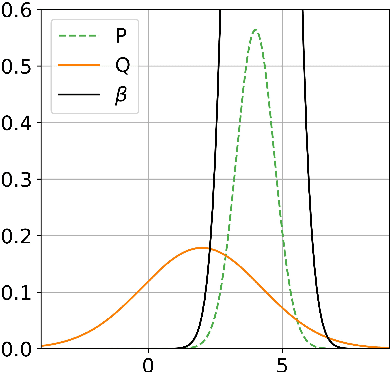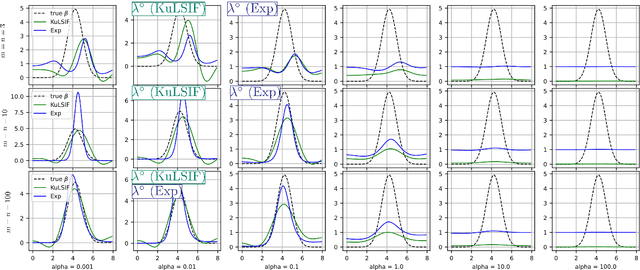Adaptive learning of density ratios in RKHS
Paper and Code
Jul 30, 2023

Estimating the ratio of two probability densities from finitely many observations of the densities is a central problem in machine learning and statistics with applications in two-sample testing, divergence estimation, generative modeling, covariate shift adaptation, conditional density estimation, and novelty detection. In this work, we analyze a large class of density ratio estimation methods that minimize a regularized Bregman divergence between the true density ratio and a model in a reproducing kernel Hilbert space (RKHS). We derive new finite-sample error bounds, and we propose a Lepskii type parameter choice principle that minimizes the bounds without knowledge of the regularity of the density ratio. In the special case of quadratic loss, our method adaptively achieves a minimax optimal error rate. A numerical illustration is provided.
 Add to Chrome
Add to Chrome Add to Firefox
Add to Firefox Add to Edge
Add to Edge